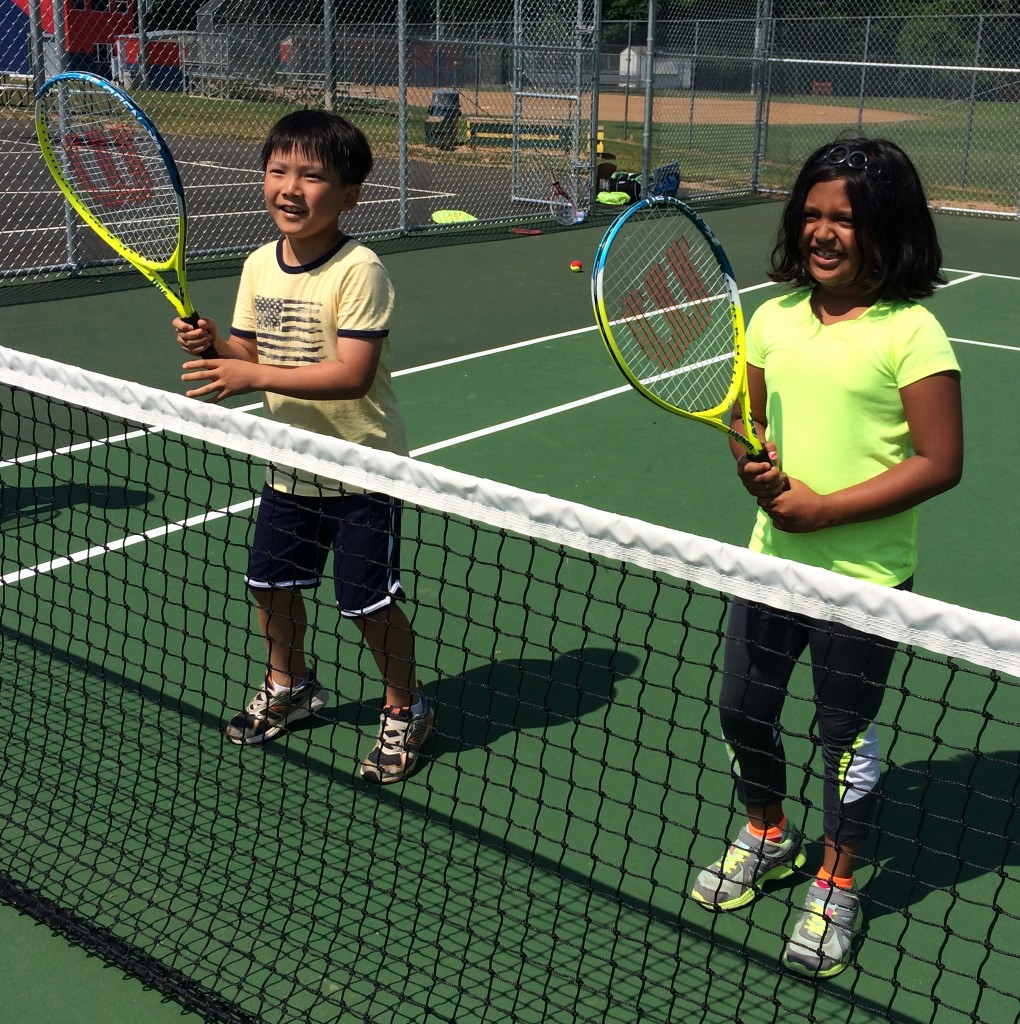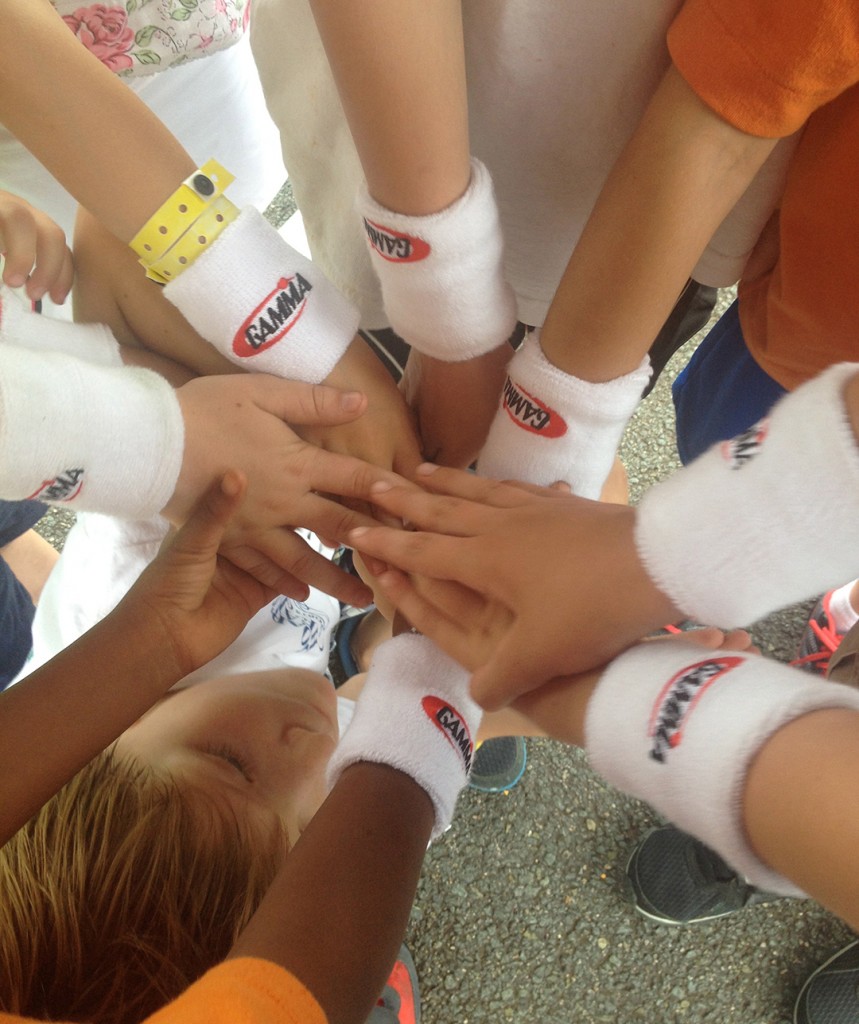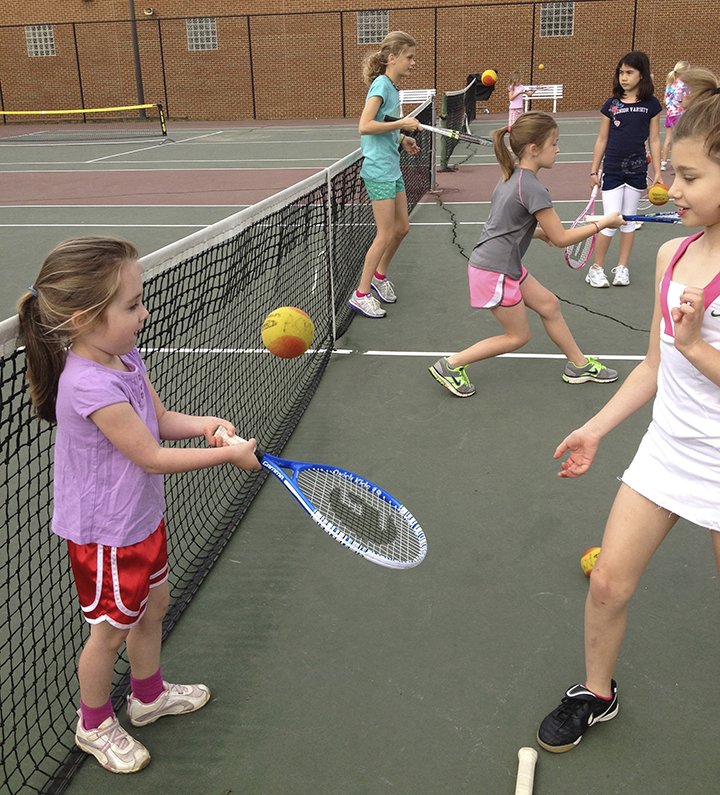Ellen Markowitz is a social entrepreneur who uses sports to help youth become their “super selves.” She studied Sport Psychology and Positive Youth Development through sport at the Curry School of Education. She founded SuperStarters Sports which offers sports-based youth development programs and consulting. Markowitz received a BA from Yale University, an MBA from New York University, and a Ph.D. from the University of Virginia’s Curry School of Education, in 2010.
Playing sports as a young girl, changed my life. When I was in high school, being part of a team helped me feel good about myself, and gave me tools to connect with others. So it has been my passion to help other girls feel connected and competent through physical activity and sport.
In the ‘90’s, when I started working in the world of after school programs in New York City, there were no acronyms like “PYD” or “SBYD (sports-based youth development).” Practitioners and researchers understood that after school programs could provide many diverse opportunities — as safe spaces for youth to connect with peers and adults, as growth places for youth to explore new activities and identities, and as home bases where youth could learn skills and competencies that could open doors to unimagined futures.
As a practitioner in the world of out-of-school-time, I try to create contexts that facilitate positive youth development, and allow youth to feel connected to others, while they learn sports skills. As a lifelong athlete, I have always been passionate about the power of sport to foster connections and competence. As a coach, I use sports to help youth be better, and find their “super self.”
One thing which we know from research, and which we also see in our programs, is that life skills, such as pro-social development or respect, are not learned simply because youth are participating in a sport or physical activity. These skills, such as listening, getting to know others, appreciating differences, dealing with emotions, problem-solving, being positive, supportive or fair, are not learned by osmosis. The context alone does not teach lessons. Coaches and administrators must intentionally teach and model these skills, planning ways to integrate them into team activities, practices and games, so that youth will learn how to be better teammates in sports and in life, and be their “Super selves.” That’s my mission, and why I do what I do.
I accomplished one of my dreams when I founded PowerPlayNYC, a nonprofit organization to educate and empower girls through sports.
After many years as a practitioner in New York City, I came to Charlottesville to study sport psychology and positive youth development through sport at the Curry School of Education. While at Curry, I had wonderful mentors and gained in-depth theoretical knowledge about topics such as PYD, motivation, mentoring, self-esteem, child and adolescent development. I was able to think more intentionally about sport programs as developmental contexts, the role of coaches, and positive practices that might lead to promoting caring, competence, connectedness confidence, and character, known in as the “5 C’s” of positive youth development.
SBYD, sports-based youth development, focuses on sport as a context for developing the 5 C’s. In addition to PowerPlay NYC (www.powerplaynyc.org), a few other examples of SBYD programs include America Scores, The First Tee and Girls on the Run (www.girlsontherun.org). With the popularity of sports as a ‘hook,’ SBYD programs can leverage a context kids find appealing, intrinsically motivating, and safe, by providing external assets such as coaches and community service opportunities, to foster internal assets such as social skills and confidence (Petipas, Cornelius, Van Raalte and Jones, 2005). I also use a coaching framework, which utilizes the five building blocks of youth sport: safety, skill building, teambuilding, youth engagement and physical activity, from San Francisco-based Coaching Corps.
I spend a lot of time thinking about how to foster caring, connection, competence, confidence and character in our SuperStarters Sports after school and summer programs, camps and coaching. Of course, every child is different, every group is different, and there’s no one path to PYD. We are always evolving in our practices and adding things that work, from our talented team of coaches, and/or from listening to the kids themselves. Our goal is to help kids find their super powers and be their “super self” through sports.
Here are a few ways that SuperStarters tries to promote the 5 Cs’ in our programs:
CARING
We try to create a caring environment. We start with a welcome huddle and a check-in, to see how all the kids are doing. Our huddle time helps them transition from the school day to after-school. Coaches learn names as quickly as possible, and use them as often as possible. In the huddle, coaches will share the plan for the session, the sport skills everyone will be learning, or they may introduce a “word of the day”. We also include a “mindful moment” where we focus on breathing, visualize success, gratitude, or three “good things”. This allows the kids to practice self-care, in addition to caring for others.
CONNECTION
To facilitate connection, we often have youth form pairs for different activities that practice sport or life skills. One of my favorite activities for building connection is to have kids interview each other and practice their communication skills. In today’s world, talking, listening and making eye contact are lost arts, so at SuperStarters we go “old school” and have kids pair up to get to know each other better…with no electronic devices!
COMPETENCE
We focus on developing physical competence by building sports skills, and social competence by encouraging relational skills. We focus on breaking sports skills down into smaller chunks, and teach the parts to form the whole. Whether it’s hitting a forehand in tennis, sinking a putt in golf, throwing a Frisbee, or performing a routine in hip hop, there’s a progression to the learning. We also coach with a “growth” mindset, praising effort and hard work, and emphasizing that mistakes are not signs of failure, but rather signals of learning. One of my favorite sayings is that most things are hard before they are easy, and that’s why we practice.
CONFIDENCE
To promote confidence, we reinforce what kids are learning, and allow them appropriate time to successfully practice their new skills. We find that confidence develops as youth build their skills and develop connections to the coach, teammates, or group. Confidence can manifest in different ways. It might be a child running to be first in line for a drill, volunteering to demonstrate a sport skill, or being the first one to give a shout-out at the end of practice.
CHARACTER
We focus on being respectful by using a” traffic light of respect.” Green means all is going well, yellow means slow down, and red means stop and think. Thus, the goal is to stay on green throughout the session. If a child were not respectful of their peers, coaches, equipment, or themselves, they would be “on yellow.” If they have a second instance of lacking respect, they would be on red, and the coach would ask them to take a time out and complete a “Think Time” sheet, in which they reflect and discuss their actions with a coach.
SuperStarters partners with 11 elementary schools in the city and county, along with the Albemarle County Parks & Recreation Department, and the Crozet YMCA, to serve more than 500 kids each year through sports & life skills programs. Check out SuperStartersSports.



